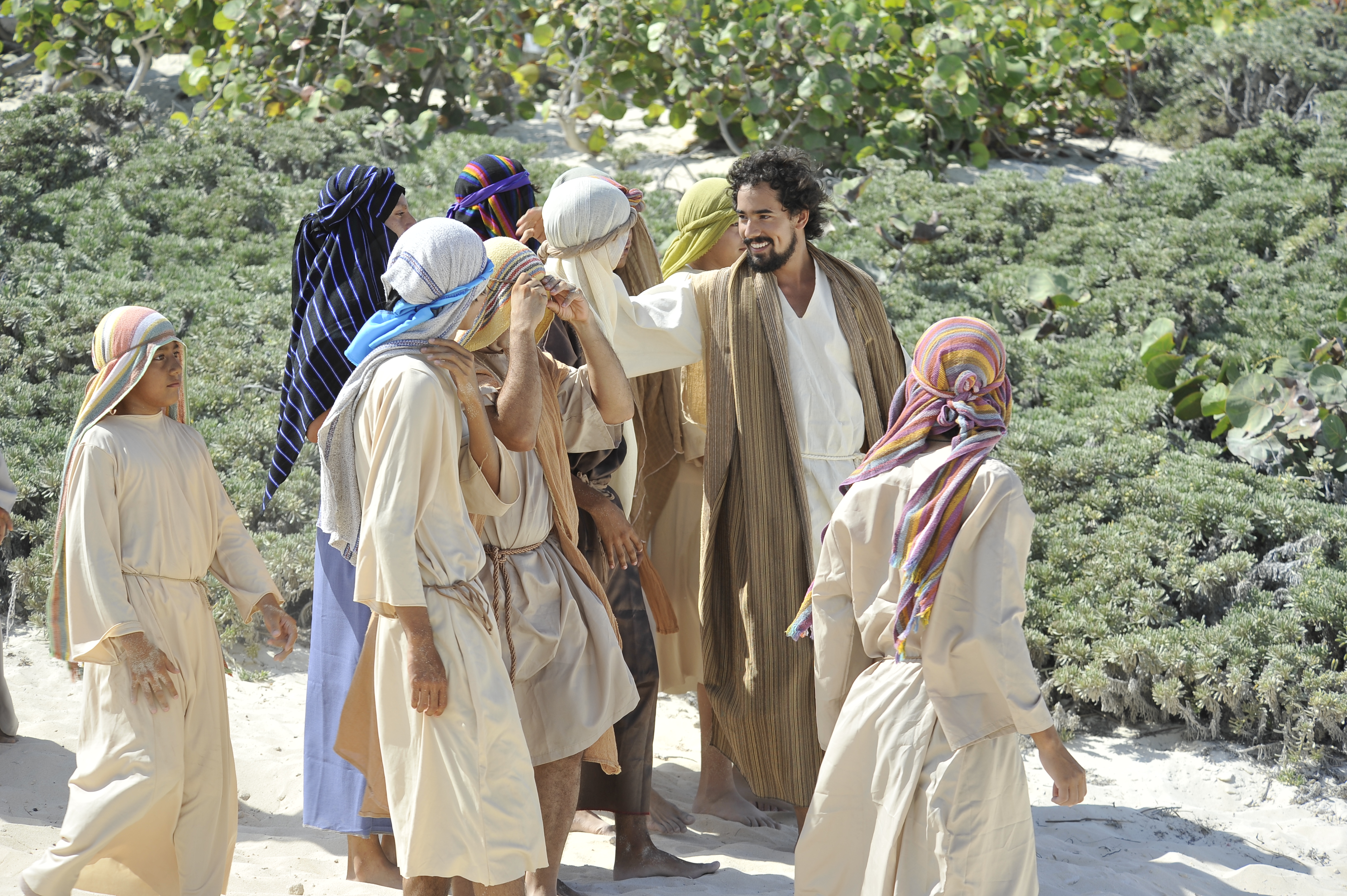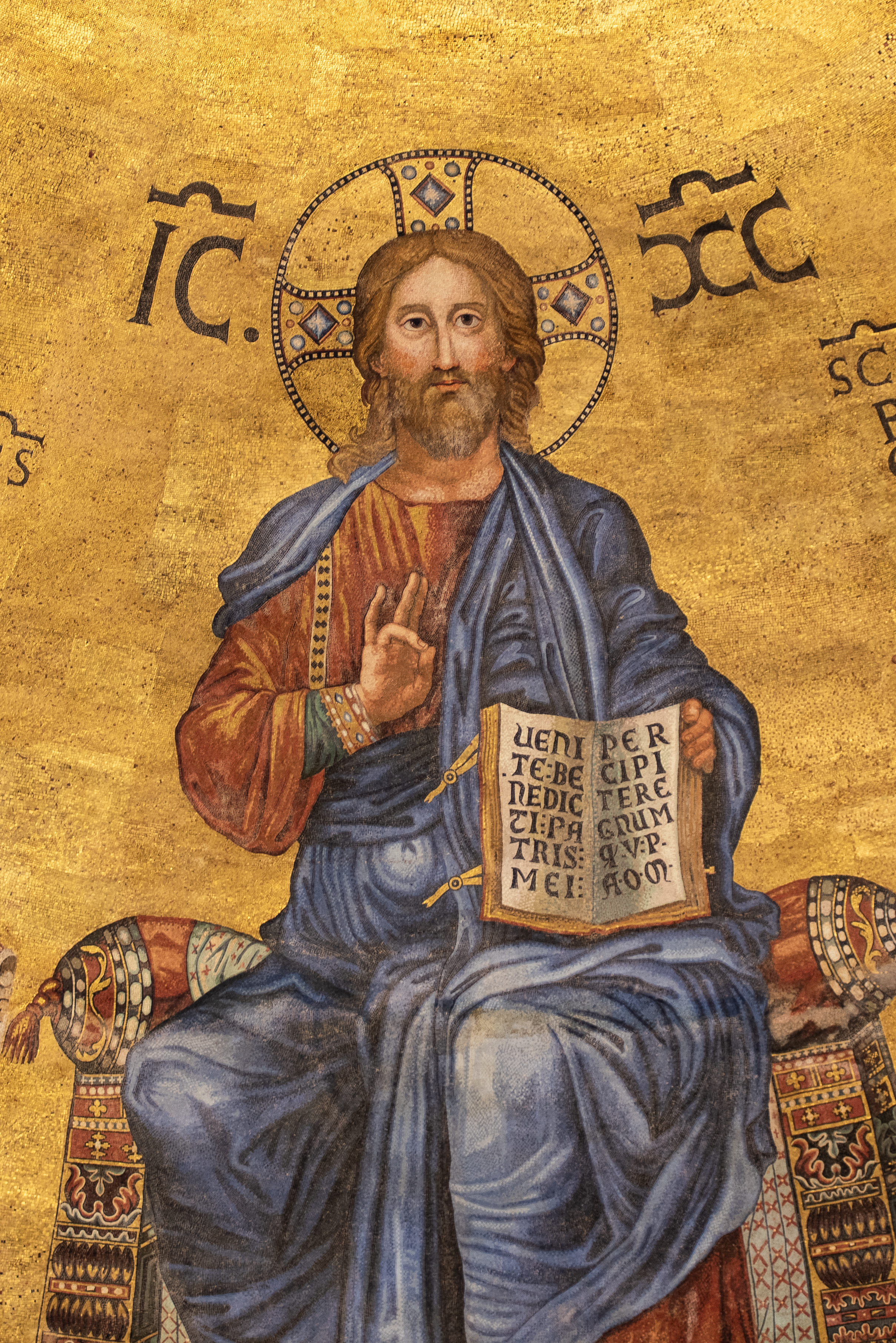I am currently running RCIA at our parish and during one of the very first classes one of our parishioners asked me what happens if they get through the class and they still struggle with some of the teachings of the Church. I ultimately said that if you get to the end of the classes and you don’t struggle with any of the Church’s teachings then maybe you misunderstood them. The teachings we are to follow can sometimes be really hard, and yet, God calls us to a higher standard and gives us the grace to carry them out. Of course we are going to struggle, that is precisely why we need the Lord.
In today’s Gospel you can almost hear the frustration in Jesus’ voice when he proclaims a fairly simple parable, and the Apostles don’t understand it. He continues to explain it and try to teach it differently and it falls on confused ears. I think we have all been there at one time or another with a teaching of the Church. We want to grasp it, we want to believe it wholeheartedly, but it is difficult. Have you ever done the thing where you think if you pray hard enough during adoration that the host will start to bleed and you’ll be in the news as someone who witnessed a eucharistic miracle? The Eucharist itself is so hard to grasp and we just want to understand it so badly, but it’s difficult.
Thankfully, Jesus knew this would be the case. We are not called to understand everything perfectly. What we are called to do though is trust in the one who is doing the explaining. This does not mean we throw reason out the window, but when we get stuck in our own heads and the limitations of science, it’s time to trust the One who created our brains and created science.
Today is the feast day of one of my favorite saints, St. Francis de Sales. He was a bishop and doctor of the Church, but even with as smart as he was, he also knew there would be things he didn’t know fully. He once said, “When you encounter difficulties and contradictions, do not try to break them, but bend them with gentleness and time.”
I think this is good advice for us all and it is great advice for those coming into the Church. Conversion takes time. God wants to work on us throughout our entire lives, not just fix us once and abandon us. Let us pray for the grace today to have perseverance when we struggle and faith to trust in the one who made all things and holds us in his hands.
From all of us here at Diocesan, God bless!
Estoy dirigiendo el programa de RICA en nuestra parroquia y durante una de las primeras clases uno de nuestros feligreses me preguntó qué pasaría si terminaran la clase y todavía tenían dificultades con algunas de las enseñanzas de la Iglesia. Al final le dije “Si llegas al final de las clases y no tienes problemas con ninguna de las enseñanzas de la Iglesia, entonces tal vez las hayas entendido mal.” Las enseñanzas que debemos seguir a veces pueden ser muy difíciles y, sin embargo, Dios nos llama a un estándar más alto y nos da la gracia para llevarlas a cabo. Por supuesto que vamos a luchar, precisamente por eso necesitamos al Señor.
En el Evangelio de hoy casi se puede escuchar la frustración en la voz de Jesús cuando proclama una parábola bastante simple y los Apóstoles no la entienden. Continúa explicándolo y tratando de enseñarlo de otra manera y cae en oídos confundidos. Creo que todos hemos estado allí en algún momento u otro con una enseñanza de la Iglesia. Queremos comprenderlo, queremos creerlo de todo corazón, pero es difícil. ¿Alguna vez has hecho eso de pensar que si oras lo suficiente durante la adoración la hostia comenzará a sangrar y aparecerás en las noticias como alguien que fue testigo de un milagro eucarístico? La Eucaristía en sí es muy difícil de entender y tenemos tantas ganas de entenderla, pero es difícil.
Afortunadamente, Jesús sabía que este sería el caso. No estamos llamados a entender todo perfectamente. Sin embargo, lo que estamos llamados a hacer es confiar en quien da las explicaciones. Esto no significa que arrojemos la razón por la ventana, pero cuando nos quedamos atrapados en nuestras propias cabezas y en las limitaciones de la ciencia, es hora de confiar en Aquel que creó nuestros cerebros y creó la ciencia.
Hoy es la fiesta de uno de mis santos favoritos, San Francisco de Sales. Era obispo y doctor de la Iglesia, pero incluso con lo inteligente que era, también sabía que habría cosas que no conocía del todo. Una vez dijo: “Cuando encuentres dificultades y contradicciones, no intentes romperlas, sino doblarlas con gentileza y tiempo”.
Creo que este es un buen consejo para todos nosotros y un gran consejo para quienes ingresan a la Iglesia. La conversión lleva tiempo. Dios quiere trabajar en nosotros durante toda nuestra vida, no sólo arreglarnos una vez y abandonarnos. Oremos hoy por la gracia de tener perseverancia cuando luchamos y fe para confiar en Aquel que hizo todas las cosas y nos sostiene en sus manos.
De parte de todos nosotros aquí en Diocesano, ¡Dios los bendiga!

Tommy Shultz is a Business Development Representative for Diocesan. In this role he is committed to bringing the best software to dioceses and parishes while helping them evangelize on the digital continent. Tommy has worked in various diocese and parish roles since his graduation from Franciscan University with a Theology degree. He hopes to use his skills in evangelization, marketing, and communications, to serve the Church and bring the Good News to all. His favorite quote comes from St. John Paul II, who said, “A person is an entity of a sort to which the only proper and adequate way to relate is love.”
Feature Image Credit: Brett Jordan, unsplash.com/photos/TngLW5BNyF8


 Susan Ciancio has a BA in psychology and a BA in sociology from the University of Notre Dame, with an MA in liberal studies from Indiana University. For the past 19 years, she has worked as a professional editor and writer, editing both fiction and nonfiction books, magazine articles, blogs, educational lessons, professional materials and website content. Thirteen of those years have been in the pro-life sector. Currently Susan freelances and writes weekly for HLI, edits for American Life League, and is the executive editor of Celebrate Life Magazine. She also serves as executive editor for the Culture of Life Studies Program—an educational nonprofit program for K-12 students. You can reach her at
Susan Ciancio has a BA in psychology and a BA in sociology from the University of Notre Dame, with an MA in liberal studies from Indiana University. For the past 19 years, she has worked as a professional editor and writer, editing both fiction and nonfiction books, magazine articles, blogs, educational lessons, professional materials and website content. Thirteen of those years have been in the pro-life sector. Currently Susan freelances and writes weekly for HLI, edits for American Life League, and is the executive editor of Celebrate Life Magazine. She also serves as executive editor for the Culture of Life Studies Program—an educational nonprofit program for K-12 students. You can reach her at 


 Kate Taliaferro is an Air Force wife and mother. She is blessed to be able to homeschool, bake bread and fold endless piles of laundry. When not planning a school day, writing a blog post or cooking pasta, Kate can be found curled up with a book or working with some kind of fiber craft. Kate blogs at
Kate Taliaferro is an Air Force wife and mother. She is blessed to be able to homeschool, bake bread and fold endless piles of laundry. When not planning a school day, writing a blog post or cooking pasta, Kate can be found curled up with a book or working with some kind of fiber craft. Kate blogs at 

 A lover of Jesus Christ, a wife, and a mother of five, Christine is the author of Everyday Heroism: 28 Daily Reflections on the Little Way of Motherhood. She is a graduate of Franciscan University, an instructor for the Institute for Excellence in Writing, and an experienced catechist. Thrilled to have recently become grandparents, she and her husband currently live in Upstate, NY. Visit her author webpage at
A lover of Jesus Christ, a wife, and a mother of five, Christine is the author of Everyday Heroism: 28 Daily Reflections on the Little Way of Motherhood. She is a graduate of Franciscan University, an instructor for the Institute for Excellence in Writing, and an experienced catechist. Thrilled to have recently become grandparents, she and her husband currently live in Upstate, NY. Visit her author webpage at 
 Merridith Frediani loves words and is delighted by good sentences. She also loves Lake Michigan, dahlias, the first sip of hot coffee in the morning, millennials, and playing Sheepshead with her husband and three kids. She writes for Catholic Mom, Diocesan.com, and her local Catholic Herald. Her first book Draw Close to Jesus: A Woman’s Guide to Adoration is available at Our Sunday Visitor and Amazon. You can learn more at
Merridith Frediani loves words and is delighted by good sentences. She also loves Lake Michigan, dahlias, the first sip of hot coffee in the morning, millennials, and playing Sheepshead with her husband and three kids. She writes for Catholic Mom, Diocesan.com, and her local Catholic Herald. Her first book Draw Close to Jesus: A Woman’s Guide to Adoration is available at Our Sunday Visitor and Amazon. You can learn more at 
 Mike Karpus is a regular guy. He grew up in Michigan’s Upper Peninsula, graduated from Michigan State University and works as an editor. He is married to a Catholic school principal, raised two daughters who became Catholic school teachers at points in their careers, and now relishes his two grandchildren, including the older one who is fascinated with learning about his faith. He also has served on a Catholic school board, a pastoral council and a parish stewardship committee. He currently is a lector at Mass, a Knight of Columbus, Adult Faith Formation Committee member and a board member of the local Habitat for Humanity organization. But mostly he’s a regular guy.
Mike Karpus is a regular guy. He grew up in Michigan’s Upper Peninsula, graduated from Michigan State University and works as an editor. He is married to a Catholic school principal, raised two daughters who became Catholic school teachers at points in their careers, and now relishes his two grandchildren, including the older one who is fascinated with learning about his faith. He also has served on a Catholic school board, a pastoral council and a parish stewardship committee. He currently is a lector at Mass, a Knight of Columbus, Adult Faith Formation Committee member and a board member of the local Habitat for Humanity organization. But mostly he’s a regular guy.


 Kathryn Mulderink, MA, is married to Robert, Station Manager for Holy Family Radio. Together they have seven children (including Father Rob), and seven grandchildren. She is President of the local community of Secular Discalced Carmelites and has published five books and many articles. Over the last 30 years, she has worked as a teacher, headmistress, catechist, Pastoral Associate, and DRE, and as a writer and voice talent for Catholic Radio. Currently, she serves the Church by writing and speaking, and by collaborating with various parishes and to lead others to encounter Christ and engage their faith. Her website is
Kathryn Mulderink, MA, is married to Robert, Station Manager for Holy Family Radio. Together they have seven children (including Father Rob), and seven grandchildren. She is President of the local community of Secular Discalced Carmelites and has published five books and many articles. Over the last 30 years, she has worked as a teacher, headmistress, catechist, Pastoral Associate, and DRE, and as a writer and voice talent for Catholic Radio. Currently, she serves the Church by writing and speaking, and by collaborating with various parishes and to lead others to encounter Christ and engage their faith. Her website is 